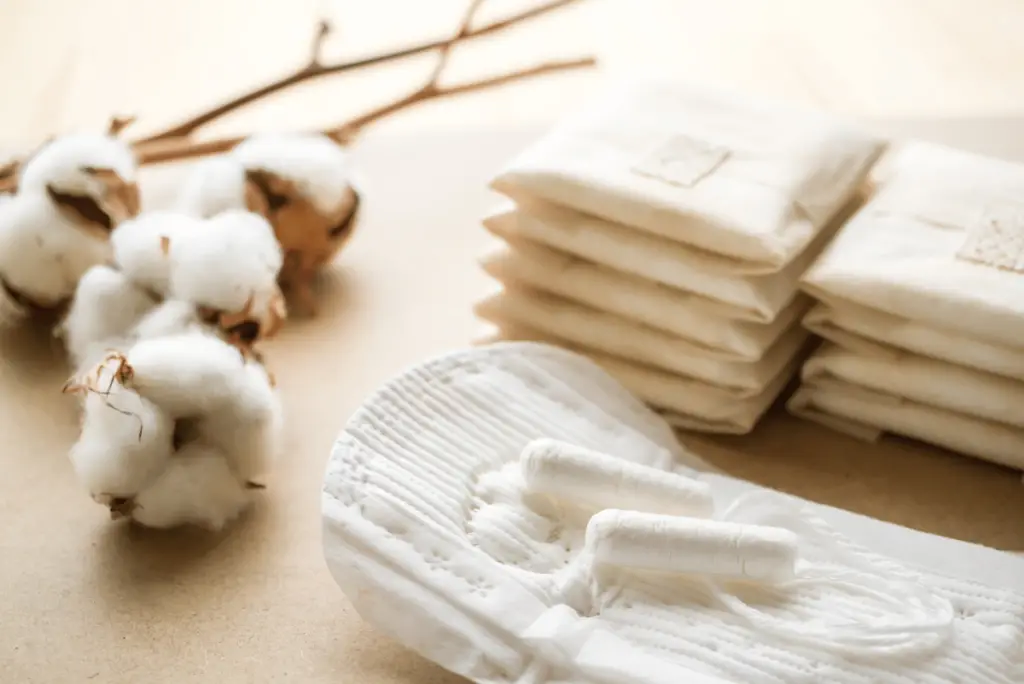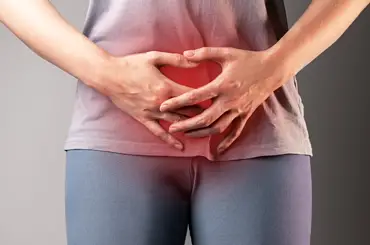There is something called period poverty. That moment when it’s your time of the month, and you find yourself without any pads to take care of your menstrual needs.
It’s one of the most challenging situations for women, and trust me; I have been there – I know how it feels. But here’s the good news: there are resources available to help you access free pads for menstrual care.
Limited access to menstrual pads can lead to discomfort, social challenges, and even health issues for us women. That’s why I have decided to share with you the strategies I used never to have to go through the daunting experience of being without menstrual products again.
In this blog post, I will share tips on accessing free pads for menstrual care – whether you are facing financial issues or simply need assistance. So, please read on.
9 Ways To Find Free Pad For Your Menstrual Care
- Search for local organizations and initiatives
- Contact women’s health centres or clinics
- Reach out to non-profit organizations
- Connect with community centers and shelters
- Check with schools and universities
- You should regularly attend health and hygiene workshops
- Engage with local government and advocacy groups
- Utilize social media platforms
- Contribute to the cause
Here is how you can gain access to free pads for your menstrual health;
1. Search for local organizations and initiatives
The first step in finding free pads for menstrual care is to research local organizations and initiatives in your community. You can use search engines like Google and social media platforms to identify groups focusing on women’s health and hygiene e.g I Support the Girls and The Red Box Project.
I advise you to focus on specific campaigns or programs that provide free menstrual pads to those in need. You can gather valuable information and resources to help with your menstrual care needs by contacting these organisations.
2. Contact women’s health centres or clinics
Women’s health centers and clinics like the Brook and Well Woman Clinics are excellent sources of information and support when it comes to menstrual care. You should consider contacting these establishments in your area and inquire about any programs they may offer for free menstrual care products.
Sometimes, they may even have partnerships with manufacturers or local initiatives that distribute pads to those in need. By reaching out to women’s health centers, you can tap into a network of professionals who are dedicated to promoting menstrual health.
3. Reach out to non-profit organizations
Non-profit organizations like the United Nations Population Funds often play a crucial role in addressing the challenges associated with menstrual care. Therefore, you should identify non-profit initiatives in your locality that focus on women’s health and hygiene.
Many of these organizations work tirelessly to ensure that women have access to menstrual products. Thus, reach out to them and inquire about any programs or initiatives they have in place to distribute free pads.
4. Connect with community centers and shelters
Community centres and shelters are essential resources for individuals facing various challenges, including limited access to menstrual care products. Contact these establishments in your area and inquire about any assistance programs or partnerships they have in place to provide free pads.
Community centres and shelters often collaborate with local organizations or government initiatives to ensure those in need access to essential menstrual products. Connecting with them allows you to access valuable resources supporting your menstrual care needs.
5. Check with schools and universities
Schools and universities are ideal institutions to provide support for menstrual care, particularly for students. Reach out to school nurses or health centres and inquire about any programs that help provide free menstrual pads to students.
Many educational institutions recognize the importance of addressing menstrual health and work to ensure that students have access to necessary products. By checking with schools and universities, you can discover resources that cater specifically to students’ menstrual care needs.
6. You should regularly attend health and hygiene workshops
Health and hygiene workshops are informative and empowering spaces that can also help you get free menstrual pads. Ensure you participate in workshops organized by local organizations, community centres, or women’s health clinics.
Some workshops incorporate free menstrual pads as part of the session, allowing you to learn about menstrual health while also receiving the necessary products.
7. Engage with local government and advocacy groups
Local governments and advocacy groups like UNICEF play a vital role in promoting menstrual health and addressing the issue of limited access to menstrual care products. Therefore, you should gather more information about government programs and initiatives that focus on menstrual health in your area.
Try reaching out to advocacy groups working on menstrual hygiene and gather information about any resources or assistance they provide. These groups often have valuable insights into local initiatives, partnerships, or campaigns offering free menstrual care pads.
8. Utilize social media platforms
Social media platforms such as Facebook, twitter, etc can be excellent tools for accessing information and resources about menstrual care. There are several online communities or groups like “Menstrual Hygiene day” on Facebook that discuss menstrual health and hygiene, find and join them. You can also have access to free menstrual care products on the Facebook marketplace.
Many individuals and organizations share valuable insights and updates regarding local initiatives or distribution programs. By actively participating in these online communities, you can gather enough support while also contributing to the collective knowledge and awareness of menstrual care.
9. Contribute to the cause
If You have the resources, you should consider contributing to the cause of ensuring menstrual care access for women, especially teenagers. You can volunteer your time or donate to organizations that provide free menstrual pads. A lot of these initiatives rely on volunteers to help with distribution or fundraising efforts, thus your efforts will go along.
Furthermore, when you actively support these organizations, you directly impact the lives of those who lack access to menstrual care products. You can also raise awareness about the issue of limited access to menstrual hygiene and advocate for policy changes, this can contribute to long-term solutions.
5 Tips To Help You Cut Down Costs On Period Products
The high rate at which prices of period products increase can be alarming. That’s why it is best to find ways to reduce those expenses; below are some tips to help you cut costs on period products:
1. Consider reusable options
One of the most effective ways to reduce the costs of period products is by switching to reusable options. Menstrual cups, cloth pads, and period underwear are all excellent alternatives that you can use multiple times, significantly reducing the need for disposable products. While the upfront cost may be higher, reusable options are more cost-effective in the long run as they can last for several years with proper care.
2. Compare prices and shop smart
Don’t settle for the first option you come across when purchasing period products. Take your time to compare prices both online and in physical stores. You should look for discounts, special offers, or bulk deals that can help you save money.
Additionally, you should consider purchasing generic or store-brand products instead of well-known brands. Many of these products offer the same quality at a lower price.
3. You can utilize subscription services
Subscription services can be a convenient and cost-effective way to ensure you always have an adequate supply of period products. Many companies offer subscription packages with discounted prices and regular deliveries tailored to your menstrual cycle.
By subscribing, you will save money and avoid last-minute trips to the store when you run out of supplies. Therefore, you should look for reputable subscription services that suit your needs and budget.
4. You should seek out free samples and trial packs
A lot of companies offer free samples or trial packs of their period products. You should take advantage of these opportunities to try out different brands or types of products without spending money.
Not only will you get a chance to find the ones that suit you best, but you can also stock up on free supplies, reducing your immediate costs. Thus, you should keep an eye out for promotions, online giveaways or reach out to manufacturers directly to request samples.
5. Take advantage of government programs
Some governments or local authorities have recognized the importance of menstrual care and have implemented programs to support individuals who struggle with the cost of period products. You should find government initiatives, subsidies, or healthcare programs in your area that may assist you in accessing affordable or free menstrual care supplies. These programs are designed to ensure that everyone has access to essential period products.
What Can I Do If I Run Out Of Tampons Or Pads?
If you find yourself in a situation where you have run out of tampons or pads, there are several options available to help you manage your menstrual flow. Below are some of them;
1. Seek help from a friend or coworker
Reach out to someone you trust, such as a friend, coworker, or family member, and ask if they have any spare tampons or pads that they can lend you. Many people understand the urgency of the situation and will be happy to help you.
2. Rush to a nearby store or pharmacy
If it’s possible, head to the nearest store or pharmacy to purchase the necessary menstrual products. Most convenience stores, supermarkets, and pharmacies have a variety of tampons and pads. If you are in a hurry and don’t have a specific brand preference, consider buying a small pack to get you through until you can restock your preferred products.
3. Use toilet paper or tissue
When no other options are available in an emergency, you can use folded toilet paper or tissue as a makeshift pad.
Although this is not a convenient solution, it can provide temporary relief until you can obtain proper menstrual products. Remember to change it frequently to maintain cleanliness and prevent discomfort.
4. Consider menstrual cups or reusable pads
If you have access to a nearby store that carries menstrual cups or reusable pads, they can be a convenient and comfortable alternative. These products can be washed and reused, eliminating the need for you to purchase them frequently. However, be sure to read the instructions carefully before using menstrual cups, especially if it is your first time.
Frequently Asked Questions
What to do when you don't have access to pads?
If you don't have immediate access to pads and are in an urgent situation, consider alternatives such as using folded toilet paper or tissue as a temporary solution.
Can you get pads for free?
Yes, you can get pads for free in certain circumstances. There are a lot of local community centers, women's shelters, schools, and nonprofit organizations that offer free menstrual products.
Final Words
Navigating the challenges of accessing menstrual products can be tough, but remember that you are not alone. By following the steps I have outlined above, you can access free menstrual care pads. Remember, it’s okay to ask for help when you need it.
Women deserve to manage our menstrual care with dignity, and I hope these tips have empowered you to take the necessary steps toward accessing free pads for your menstrual needs. Trust me, and You have got this.






